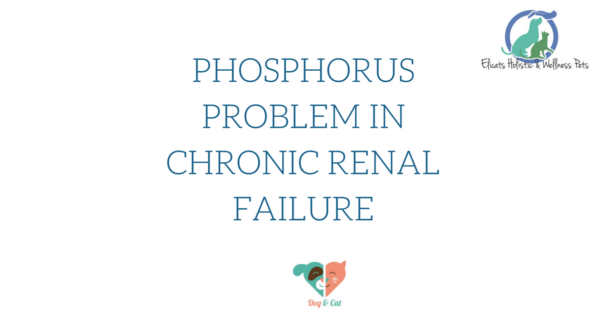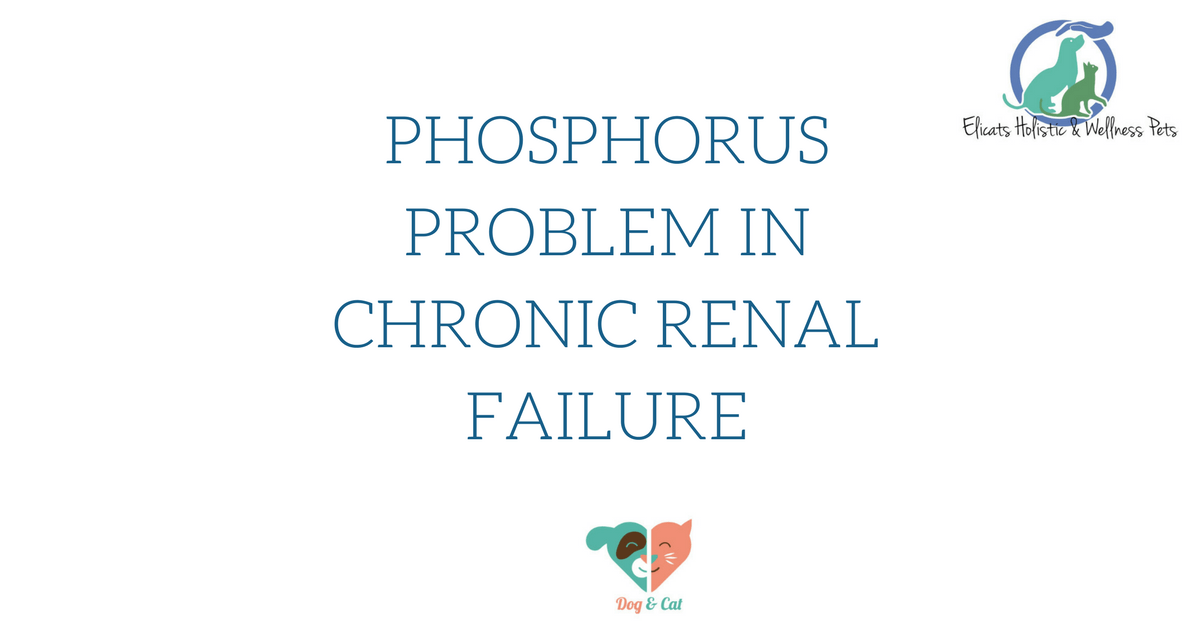Phosphorus problem in chronic renal failure CKD
Phosphorus problem in chronic renal failure
When chronic renal failure is diagnosed in cats or dogs, check azotemia (BUN) and serum creatinine levels as well, it is recommended to ask your veterinarian to evaluate blood phosphorus concentration through laboratory standard analysis.
Chronic renal failure is a disease characterized by a progressive inability of the kidney to perform various functions.
1. The excretion of nitrogenous catabolites
2. Maintain electrolyte homeostasis
3. Perform endocrine function
In dogs and cats during renal disease, the excretion of phosphate represents a very serious problem, more important than not follow a Renal food diet (specific pet food for kidney diseases)
The cat is a carnivore and needs quality digestible protein to support his muscle mass and to best mantain his/her vital functions
Phosphorus problem in chronic renal failure – Hyperphosphatemia
When glomerular filtration rate (GFR) decreases, blood phosphate level increase, reduce the levels of phosphorus prevents the development of secondary hyperparathyroidism.
Hyperphosphatemia is treated with phosphate binders.
Excess of phosphorus and secondary hyperparathyroidism
The parathyroid glands are responsible for maintaining proper ratio between phosphorus and calcium, from stage 3 of chronic kidney disease onwards, high levels of phosphorus are found (hyperphosphatemia), when phosphorus is in excess the parathyroid glands over product parathyroid hormone to compensate and keep the proper calcium/phosphorus ratio, this over-production of parathyroid hormone (PTH) causes the removal of calcium from the bones to balance the excess phosphorus.
Supplements which chelate phosphorus
In commerce we can find different supplements, in my opinion, those that succeed most of all to chelate are the chitosan-based supplements, chitosan is contained in Epakitin, a new nutritional supplement from Vétoquinol safely and effectively supports kidney function by helping slow down the progression of chronic kidney disease. Epakitan is a dietary phosphate binder that lowers elevated blood phosphate levels.
Ask your veterinarian if it is immediately necessary administer the phosphate binders, they must be mixed with food to ensure maximum effectiveness.
[irp posts=”13495″ name=”Azodyl in chronic kidney disease (ckd) in cats and dogs”]
Phosphorus problem in chronic renal failure – CHITOSAN IS NOT ONLY A PHOSPHORUS-CHELATING AGENT
Chitosan is a chitin-derived product, a natural substance present up to 80% in crustaceans shells and in insect’s exoskeleton (30%)
Chitosan is widely used in medicine for its properties:
- Antibacterial
- Immunostimulants
- Analgesic properties
- Reduces glycemia
The chitosan allows to reduce the excess phosphorus
FURTHERMORE IT HAS ANOTHER HIGHLY IMPORTANT PROPERTY
it reduces azotemia and creatinine levels Chitosan prevents uremic toxins present in the intestine from enter the bloodstream.
 Warnings
Warnings
Do not administer chitosan for long periods, use with caution in animals with allergies or food intolerance, do not give to pregnant or nursing animals.
For its chelating properties it may reduce the absorption of mineral salts, essential fatty acids and vitamins. Caution: in commerce there are products that may contain cardiotoxic substances such as ephedrine or synephrine.

